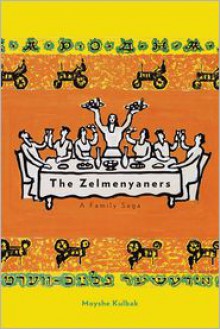
Certainly an informative book, but claiming a “highly readable style” is taking it too far. This is an academic text about the material and social conditions of Parisians in the 18th century. Parts of it (the first chapter or two in particular) consist of wordy academic language that doesn’t say very much, but other parts are extremely specific – what items of clothing were owned by what percentage of the population upon their death; what percentage of people picked up for crimes were capable of signing their names, etc. The author is very explicit about what sources he’s using and seems careful not to overstate his data. He’s also very interested in distinctions among “the people” rather than treating them as a monolith – servants lived differently from wage earners, for instance, even at the same income level, and were generally the means of transmission of culture between the rich and the poor. Also just some really interesting stuff in here: apparently everything was for sale on the streets of Paris, from songs (apparently people would actually buy the sheet music after hearing them sung, which is rather sweet) to secondhand food (leftovers from their employers’ tables being sold off by servants).
I should also add that despite the title, this is more than an essay – at 277 pages of text (there are no endnotes or reference pages though there are occasional footnotes – the sources are discussed in the text itself and most of the content appears to come from the author's original research), it’s a pretty standard-sized book.
My criticisms of the book are perhaps beside the point since I’m not sure it was ever intended for a general audience anyway, but here they are: first, it assumes knowledge of French history and society on the reader’s part. Even without having much I generally understood it, but there were some weird bits, like where the author refuted the notion that the Parisian poor didn’t have children because they either abandoned them or the kids ran away…. by giving statistics on the class from which abandoned children came, to prove that a large percentage came from higher up the social hierarchy. I was so confused by this – why were all of these people abandoning their kids? How do we know who was responsible? What did abandonment mean in this context (apparently some parents later returned)? At what age were children actually running away, and what happened to all these solo kids? Relatedly, the translator – despite translating the book from French to English presumably for those who, you know, don’t read French – left a number of words in French, including occasional key concepts and the titles of all of the books mentioned that were owned by Parisians.
Overall, I think this book will be quite useful for those doing research on eighteenth century Parisian society, less so for anybody else. Interesting stuff though and the author certainly seems to have reached his conclusions as a result of careful study.

 Log in with Facebook
Log in with Facebook 


![By Galsan Tschinag The Blue Sky (First Trade Paper Edition) [Paperback] - Galsan Tschinag By Galsan Tschinag The Blue Sky (First Trade Paper Edition) [Paperback] - Galsan Tschinag](http://booklikes.com/photo/max/220/330/upload/books/8/e/8e957076dbc2f33d0f2efa97e2da96c8.jpg)






